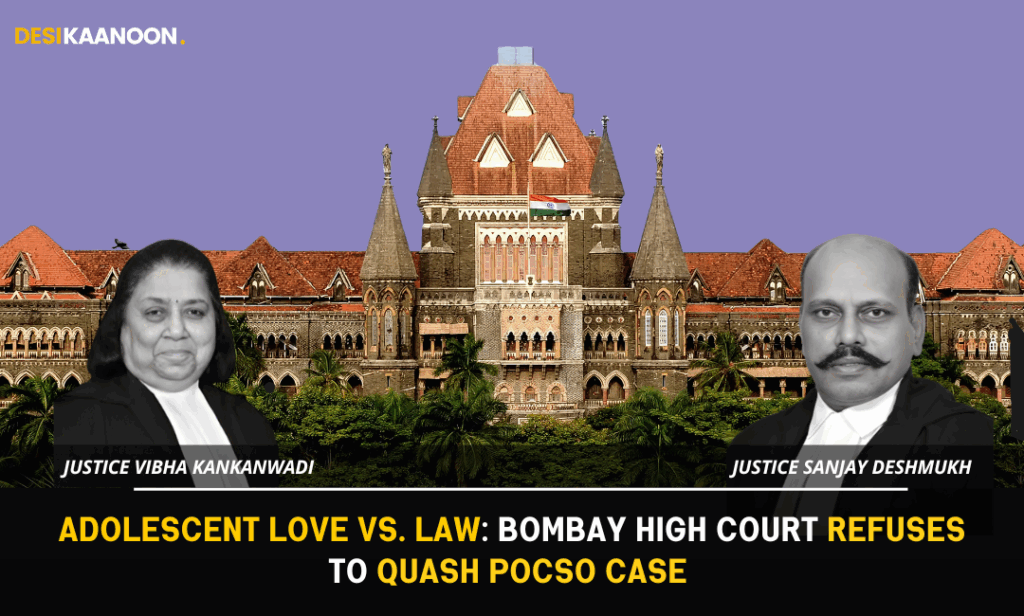Meenakshi Shukla
On 30th June 2025, the Aurangabad Bench of the Bombay High Court refused to quash a POCSO case involving a 27-year-old man and a 17-year-old girl. The case has reignited the national debate around adolescent love and the criminalisation of consensual relationships under the Protection of Children from Sexual Offences (POCSO) Act.
The man approached the Court seeking the quashing of an FIR filed against him. He claimed the relationship was consensual and that both he and the girl were in love. The girl supported his claim, stating she had no complaint and quashing the case would help secure her and her child’s future.
Despite this, the Court emphasised the statutory framework under which the POCSO Act operates. The Bench, comprising Justice Vibha Kankanwadi and Justice Sanjay Deshmukh, held that the man had knowledge of the girl’s age and acted irresponsibly. “He should have waited until she turned 18,” the Court observed.
The couple had eloped in 2023 and reportedly married at a temple without their parents’ consent. The girl later became pregnant and returned to her parents’ home, where a hospital reported the matter to the police. The FIR led to charges under the POCSO Act, which criminalises all sexual activity with individuals below 18 years of age, regardless of consent.
The Court acknowledged the broader legal and societal implications of such cases. It noted that unless the Central government clarifies its stand on decriminalising adolescent relationships, the judiciary must proceed within the boundaries of existing law. Court said“We should not consider carving exceptions until the government responds to the Supreme Court’s directive,” the Court stated.
This stance follows the Supreme Court’s recent order in Re: Right to Privacy of Adolescents 2025 INSC 778, where it expressed concern about criminalising teenage romance under POCSO. The Apex Court had directed the Centre to study recommendations by the Amicus Curiae and examine the need for a National Sex Education Policy.
However, the Government has yet to respond, leaving courts across India without a clear framework to address consensual adolescent relationships.
The Bombay High Court also expressed concern over rising child marriages and teen pregnancies in the region. Citing a local newspaper i.e. Divya Marathi, dated 4th June 2025, Court noted that 453 minor girls involved in child marriages became pregnant in the Aurangabad district in 2024 alone.
Legal experts say the case reflects a growing tension between statutory mandates and evolving social norms. While POCSO was designed to protect minors from abuse, it has often been applied in cases of consensual teenage relationships, leading to calls for reform.
Until the Centre acts, courts remain bound by the strict language of the law. The Bombay High Court’s refusal to quash the case underscores the urgent need for legislative clarity and a balanced approach that protects minors while respecting their autonomy.
Case Name: Aakash Nanasaheb Waghmare v. State of Maharashtra
Case Number: Criminal Application No. 479 of 2024
Bench: Justice Vibha Kankanwadi and Justice Sanjay Deshmukh
Click here to read the judgment
Instagram: Click here
LinkedIn: Click here
For Collaboration and Business: info.desikaanoon@gmail.com

